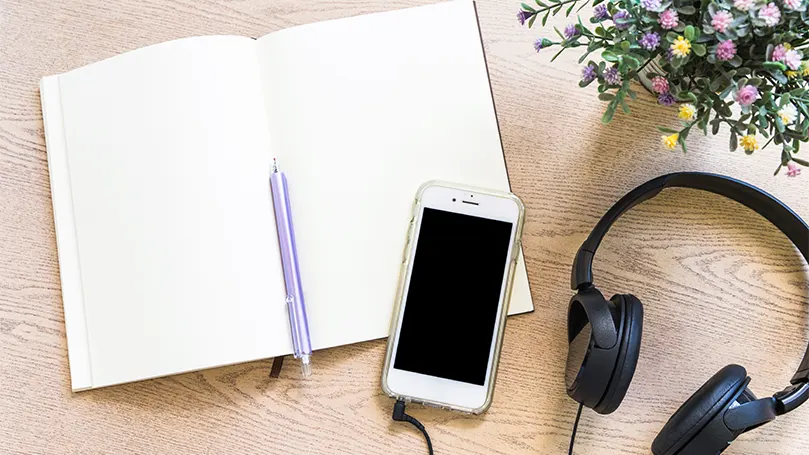Advantages of reading before bed
Yes, yes, bedtime reading can be fun, but, fun is not the only thing that can come from this activity.
Namely, reading before bed can help with the following:
- Reduce stress levels – which is crucial for a good night's sleep. According to a study by the University of Sussex, just six minutes of reading can lower stress levels by up to 68% (imagine what could happen if you read for half an hour).
- Reading can also help improve cognitive function – including memory and creativity. In fact, a study published in the journal Brain Connectivity found that reading a novel for just a few days can increase connectivity in the brain.
- Contributes to quality sleep – reading can help with that too! The act of reading can help calm the mind and prepare it for sleep. You will fall asleep faster and stay asleep longer. Plus, it's a great way to wind down after a long day.
- Helps with insomnia or other sleep disorders – reading before bed can be a helpful addition to a treatment plan – a plan for better sleep. A study published in the Journal of Clinical Sleep Medicine found that cognitive behavioural therapy (CBT) that includes reading before bed can help improve sleep quality in those with insomnia.
- Improves empathy and understanding of others – According to a study published in Science, reading literary fiction can help improve social skills and emotional intelligence.

So the next time you're debating whether or not to pick up a book before bed, remember all of these amazing benefits and dive into a good story.
Children and bedtime stories
As the sun sets and bedtime approaches, many parents reach for their child's favourite book to read aloud (and some also allow their child to spend some time watching TV, which is also okay from time to time).
But why is this ritual so important? Well, the act of reading to a child before sleep has been shown to have numerous benefits, including better quality sleep.
When we read to our children before bed, we create a calming and peaceful environment that signals to their brains that it's time to wind down and prepare for sleep. This can help regulate their circadian rhythm and promote better sleep patterns. Additionally, studies have shown that reading before bed can reduce stress and anxiety levels, making it easier for children to relax and fall asleep.

But the benefits of bed reading don't stop there. In fact, research suggests that reading to a child can actually improve their cognitive function and academic success. By exposing them to new ideas and concepts, we're helping to expand their knowledge and critical thinking skills. Plus, reading together can foster a love of learning and exploration that can last a lifetime.
Ultimately, reading to a child before bed is more than just a way to pass the time. It's a special bonding experience that can help promote healthy sleep habits and set them up for success in all areas of their life. So the next time your little one asks for a bedtime story, embrace the opportunity to share the joy of reading with them.
Paper book VS E-book
The debate between paper books and eBooks has been raging for years, with each side vehemently defending their preferred format. But what are the pros and cons of each, and is one really better than the other?
First up, we have paper books. There's something undeniably magical about the smell of a new book, the feel of the pages turning under your fingers, and the weight of it in your hands. Plus, there's no denying the aesthetic appeal of a bookshelf filled with colourful spines and well-worn covers. But let's not forget the downsides – paper books can be heavy and cumbersome to carry around, and they're not exactly waterproof. Plus, reading in low light can be a challenge without a flashlight or overhead lamp.
On the other hand, we have eBooks. The convenience factor is undeniable – with just a few clicks, you can have an entire library at your fingertips, all stored neatly on a lightweight device that fits in your pocket. And with adjustable font sizes and built-in lighting, reading in any environment is a breeze. But for some, the lack of physicality and tactile experience of reading on a screen just can't compare to the feel of a paper book. Plus, the constant notifications and distractions from other apps can be a major drawback for those trying to focus on their reading. And, let us not forget the fact that eBooks emit blue light – which can disrupt sleep quality.

But, what is better for having a restful sleep?
Research suggests that reading paper books before bed is better for sleep than reading e-books. One study found that reading a paper book for 30 minutes before bed resulted in faster and deeper sleep compared to reading an e-book on a tablet. The blue light emitted by electronic devices, such as tablets and e-readers, can disrupt our circadian rhythms and suppress the production of melatonin, a hormone that helps regulate sleep.
Furthermore, some people find that the glow from electronic devices can make it harder to relax and fall asleep, whereas the absence of a backlight on paper books makes them more conducive to pre-sleep reading. Additionally, the tactile experience of reading a physical book, turning the pages, and feeling the weight of the book in your hands can be more satisfying and relaxing than reading on a screen.
What about audiobooks
While listening to audiobooks can be a relaxing and enjoyable activity, it may not be as effective for promoting sleep as reading a physical book or even an e-book. This is because audiobooks require a different type of mental engagement compared to reading, which can keep your mind active and prevent you from fully relaxing and drifting off to sleep.
Furthermore, listening to audiobooks can be distracting if you have trouble focusing on the story or if the narrator's voice is too engaging or stimulating. However, some people find that listening to calming audiobooks or guided meditations before bed can help them relax and fall asleep more easily.
Overall, audiobooks may not be the best option for promoting sleep, but they can still be a great way to unwind and enjoy a good story or listen to relaxing content before bedtime.

Creating the best bedtime reading routine
Creating a bedtime reading routine can be a great way to wind down and prepare for a restful night's sleep. Here are some tips on how to create the best bedtime reading routine:
- Choose the right book to read before sleep: Select a book that is calming and enjoyable to read, such as a favourite novel, a collection of short stories, or a poetry book. Avoid reading anything that is too stimulating or thought-provoking, such as a thriller or a self-help book.
- Set the mood: Create a relaxing environment for reading by dimming the lights, lighting a scented candle, or playing soft music. Make sure the room is comfortable and free of distractions – another very important thing when it comes to achieving improved sleep quality.
- Establish a routine: Set aside a regular time each night for reading, such as 30 minutes before bed. This will help train your body and mind to associate reading with sleep and relaxation.
- Avoid electronics: Avoid using electronic devices, such as tablets or smartphones, before bed as the blue light emitted by these devices can interfere with sleep. Instead, opt for a paper book or e-reader with a blue light filter.
- Practice mindfulness: Before starting to read, take a few deep breaths and try to clear your mind of any worries or distractions. Focus on the present moment and the pleasure of reading.
- Limit caffeine and alcohol: Avoid consuming caffeine or alcohol before bed as these can interfere with sleep quality and make it harder to fall asleep.
By incorporating these tips into your bedtime routine, you can create a relaxing and enjoyable reading experience that promotes restful sleep.
To close the chapter
So, whether you prefer the comforting scent of a physical book, the convenience of an e-reader, or the soothing voice of an audiobook, reading before bed is an excellent way to unwind and prepare your mind for a restful night's sleep.
With the right book, you can travel to far-off lands, learn new things, or simply escape into a world of imagination. And with the added bonus of improved sleep and better health, there's no reason not to add reading to your bedtime routine.
So, grab a book, find a cosy spot, and let yourself drift off into dreamland.
Spread the word
Happy reading













There are no comments yet
"*" indicates required fields